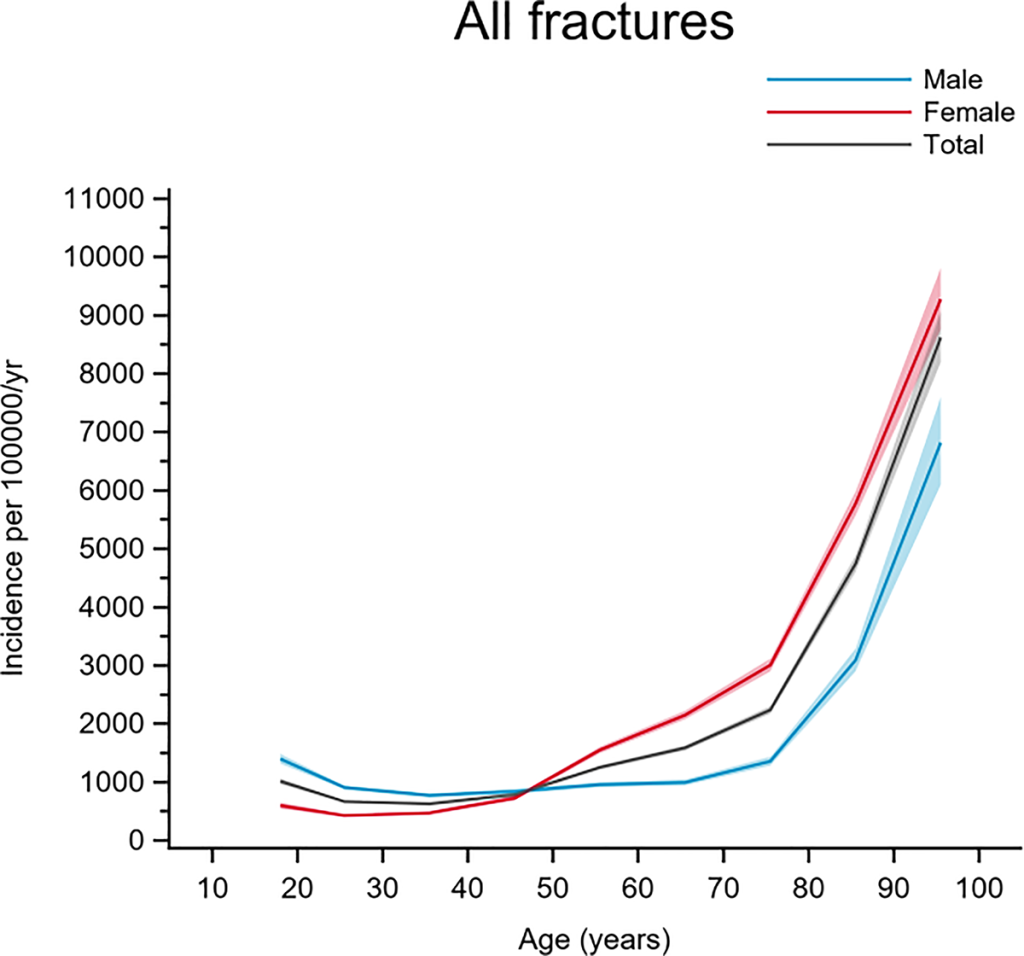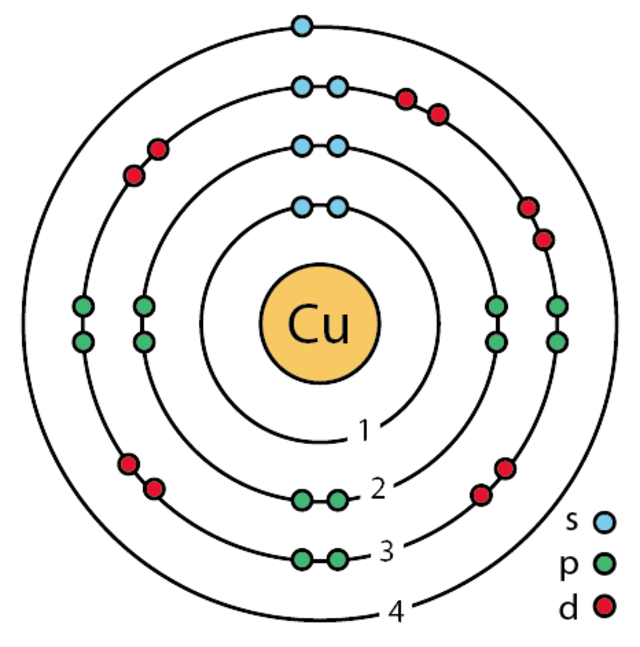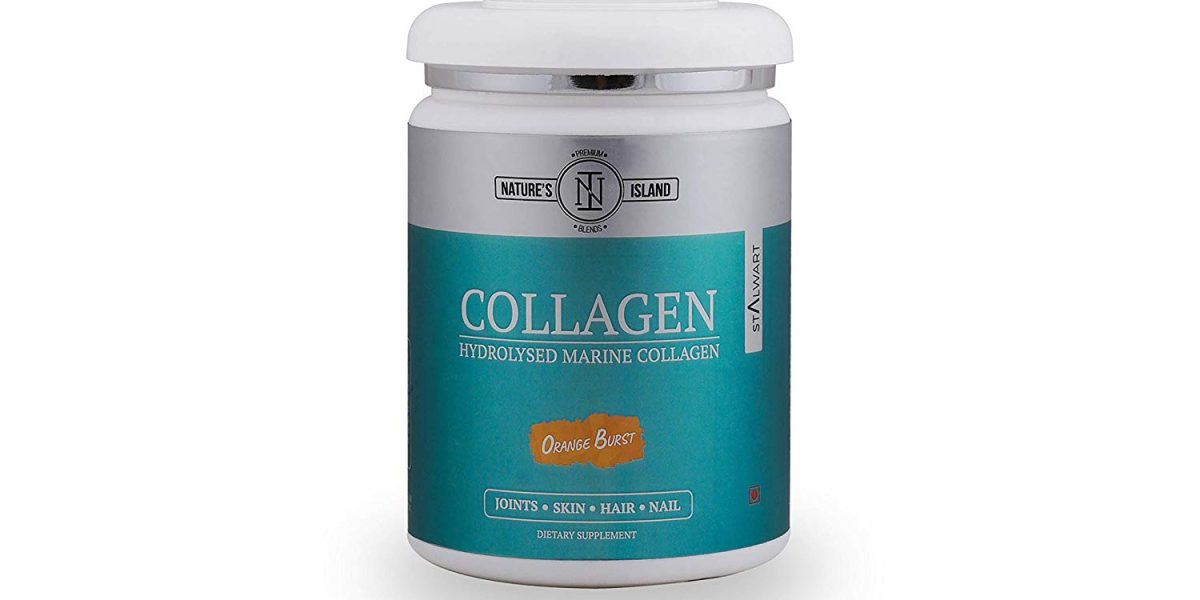When we think of building strong bones, most of us picture drinking plenty of milk for its calcium—at least, that’s what our elementary gym teachers used to tell us. But building and maintaining strong bones requires more than just calcium from milk; supplemental vitamins play a key role in the development and maintenance of strong bones. Bone fractures are common in young, but especially elderly people, and adding collagen supplements to one’s diet can have a major impact on bone toughness reducing the risk of fractures.

In the U.S. alone, there are about 6.8 million bone fractures per year, with fracture risk increasing exponentially with age (see graph). While a broken bone in adolescence might be an unfortunate setback, perhaps even a brief pause in an athletic career, for a senior citizen, a fracture can pose serious health risks, affecting mobility, independence, and overall quality of life. As people age, their bodies produce fewer vital proteins essential for maintaining the strength and resilience of bones. By supplementing these key proteins, especially in later years, individuals can enhance bone strength and significantly reduce fracture risk.
Because of their remarkable benefits, collagen supplements have surged in popularity in both the cosmetic and medical markets. By adding essential amino acids for collagen synthesis to one’s diet, these supplements can enhance bone density and increase resilience against fractures. However, for supplemental collagen to be effective, other essential minerals are required, especially Copper. Collagen primarily provides the matrix, or scaffold, that reinforces bones, and this matrix is what gives bones the toughness needed to withstand everyday stresses and impacts. As we age, collagen production naturally decreases, leading to a reduction in bone density and an increased risk of fractures. Research also shows that supplemental collagen can help reduce joint pain by increasing bones’ shock absorption capacity.

Supplemental copper can also help keep bones strong—not just iron, but copper, too (although refrain from adding spare pennies to your diet). As mentioned, collagen is crucial for bone toughness, and copper is crucial for forming the collagen matrix within bones. Copper acts as a cofactor for the enzyme responsible for forming cross-links between collagen fibers. With a copper deficiency, collagen fibers remain underdeveloped, compromising the structural integrity of bones. Animal studies have demonstrated that insufficient copper intake significantly reduces bone strength and resilience, making bones more prone to fracture, even with normal calcium levels.
Overall, supplementation of collagen, paired with copper, can increase bone strength and is particularly important in preventing fractures in the elderly. Copper and collagen are partners in building strong, resilient bones, so consider adding some supplemental collagen and copper to your diet, especially as you get older.
More reading here
